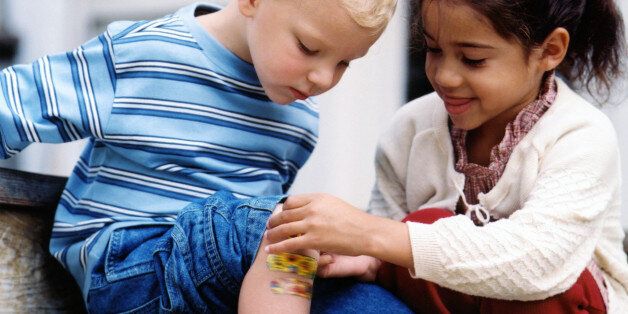As a parent, you don’t want your child to feel unhappy or sad when you say “no”. In order to avoid the tantrums and tears, sometimes it is much easier to just give-in. However, constant pampering and avoiding the meltdowns, in the long run, can be more harmful than not. Spoiled children tend to grow into unhappy and selfish adults. Here are five red-flag signs that you have a “highly-spoiled” kid, but more importantly, the experts share what to do about it!

1. Red Flag: “No”is not an option.
When your child does not accept the word “no” from you, that’s a problem.
Here’s what the experts say to do about it.
When you say “no,” give them an explanation as to the why. For example: “Homework comes before playtime. This way, you can have fun without worrying about school work.” You are the parent and it is your job to set everyone’s expectations. You are not decreasing their self-esteem or practicing “bad parenting” with saying “no”. On the contrary, you are doing the complete opposite.
2. Red Flag: The child has a bad case of the “gimmie’s.”
When a child is all about receiving more than giving and the words “thank you” and “please” have left the building, that’s a problem, that’s a problem.
Here’s what the experts say to do about it.
Teach gratitude. Make sure that children know that other than the basic necessities, you are not obligated to give-in to the “gimmie’s”. Let them know that you give them things because you enjoy seeing them smile, not because you have to. Impress upon them that “thank you” and “please” are essential to being grateful for not only what they have, but for you as a parent as well. Plus, let them know that one day they will be adults and “gimmie” just doesn’t work quite as well.

3. Red Flag: They are demanding what they want ASAP.
The expectation here is that the parent/adult cater to what the child wants, when they want it, and how they want it, and that’s that. Well, that’s a problem.
Here’s what the experts say to do about it.
According to Michele Borba, EdD, mother, educational psychologist, parenting expert, and author of Thrivers: The Surprising Reasons Why Some Kids Struggle and Others Shine and UnSelfie: Why Empathetic Kids Succeed in Our All-About Me World,” research shows that being able to pause, wait and delay that instant gratification, kids will be set for a future full of academic and financial success.
Here are a few scenarios that Borba suggest you try:
- If you’re on the phone and your kid wants your attention, signal: “Later!”(Don’t get off the phone or put the person on hold unless it is a 911!)
- If your daughter wants that sweater now but forgot her allowance money, tell her: “Next time!”
- If your son pushes his sister off of her chair so he can use the computer faster, say: “Wait!”
4. Red Flag: They only think of themselves.
When they only focus on “me, me, me” and not think of others in any aspect at all, that’s a problem.
Here’s what the experts say to do about it.
Children need to understand and practice empathy. If they see you being concerned about others feelings, they will want to emulate and show the same concern and care. Being empathetic to others now will make them extraordinary adults in the future.

5. Red Flag: They are never satisfied with what they have.
They have it all, but they always want more. That’s a problem.
Here’s what the experts say to do about it.
Let them know that if they want “more,” then they have to give to others. Have them go through some of their old toys and such and donate to a children’s hospital or a church. This will begin to teach children altruism. After you’ve done some spring cleaning, set limits on what they will get from that point on. Teach them that it is not all about continually accumulating “stuff.” And of course, the main thing when they do receive is to make sure that they are grateful.







